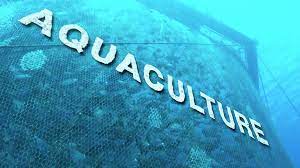The article “Vets remain inaccessible to small-scale farmers” sheds light on the challenges that small-scale farmers in South Africa face in accessing veterinary services including shortage of veterinarians in rural areas and high costs associated with private veterinary services which has resulted in farmers resorting to unregulated and often ineffective animal health treatments, which ultimately affect the quality of their products.
Overall, the article highlights the challenges faced by small-scale farmers in accessing veterinary services and the impact of this on the overall agricultural sector. It emphasizes the need for investment in veterinary infrastructure, training of more veterinary professionals, and collaboration between the government, veterinary professionals, and the agricultural sector to address the issue. The article serves as a call to action for stakeholders in the agricultural sector to work together towards providing accessible and affordable veterinary services for small-scale farmers, which will ultimately contribute to the growth and development of the sector.
In the past decade, meat and dairy exports from developed countries, particularly the European Union, have been increasing, and are expected to continue to grow in the future. While this trend offers potential economic benefits for developing countries, such as increased income and employment opportunities, it also raises concerns about the potential negative impacts on local food systems and the environment. There for, gaining a better understanding of the possible effects of exports of meat and dairy products on the economies of developing nations formed a key objective of ‘The Impact of Meat and Dairy Exports on Developing Countries’ (IMMPEX) project conducted by a consortium of institutions in Europe and Africa, including the Thünen Institute of Farm Economics, the International Livestock Research Institute (ILRI), and Wageningen University. To achieve this, the project is evaluating the possible impacts of various scenarios of expansion in meat and dairy exports on local economies using a combination of quantitative modeling and case studies.
Overall, the IMMPEX project provides important insights into the complex relationship between meat and dairy exports and development in developing countries. Although there is significant potential for export-led growth to contribute to economic development and poverty reduction, the potential risks and negative impacts on local food systems and the environment need to be carefully evaluated. The project emphasizes the need for a holistic approach that takes into account the economic, social, and environmental dimensions of meat and dairy trade, and provides important information for policymakers and other stakeholders to make informed decisions about the future of meat and dairy exports. find more details in their report here https://www.thuenen.de/en/cross-institutional-projects/impact-of-meat-and-dairy-exports-on-developing-countries-immpex
In this captivating article titled “Aquaculture in Africa: Aquatic Animal Welfare, Impact on the Environment, and the Sustainability of the Sector” the authors embark on a journey to explore the multifaceted issues surrounding aquaculture practices in Africa. The authors present a detailed analysis of three crucial aspects: aquatic animal welfare, environmental implications, and the overall sustainability of the aquaculture sector.
The first part of the article sheds light on aquatic animal welfare discussing the ethical and moral considerations of raising and farming fish and other aquatic species. It delves into the challenges of ensuring optimal living conditions for the animals, addressing their healthcare needs, and minimizing stress levels during aquaculture practices. This section emphasizes the importance of adopting humane practices and responsible husbandry techniques to enhance the welfare of farmed aquatic animals.

Secondly, the article examines the impact of aquaculture on the environment discussing various environmental concerns associated with the industry, such as water quality degradation, habitat loss, and potential pollution from waste and chemicals. The article highlights the importance of recognizing the interconnectedness of aquaculture systems with surrounding ecosystems. It presents case studies and research on best practices to mitigate the environmental impacts and promote sustainable aquaculture development in Africa.
Finally, the article evaluates the overall sustainability of the aquaculture sector on the continent. It assesses the economic, social, and environmental dimensions of the industry’s growth. They emphasize the need for a balanced approach that not only considers profit and production but also takes into account social equity and ecological integrity. The article discusses potential policy interventions and technological innovations that can drive positive changes, enhance sector sustainability, and align aquaculture practices with broader sustainability goals.
In conclusion, the article presents a comprehensive and informed perspective on the challenges and opportunities in the African aquaculture industry. By addressing crucial aspects such as animal welfare, environmental impact, and overall sector sustainability, the article offers valuable insights for policymakers, stakeholders, and practitioners striving to develop a thriving and responsible aquaculture sector in Africa. Implementing the recommendations from this study could contribute to fostering a balanced and sustainable growth of aquaculture that respects the welfare of aquatic animals while preserving the environmental health.
info@awecca.org
+256-703-560277
Livingstone Drive, COVAB Veterinary Complex, Makerere University
P.O BOX 7062 Kampala, Uganda
Have an Inquiry?
Copyright © awecca 2023